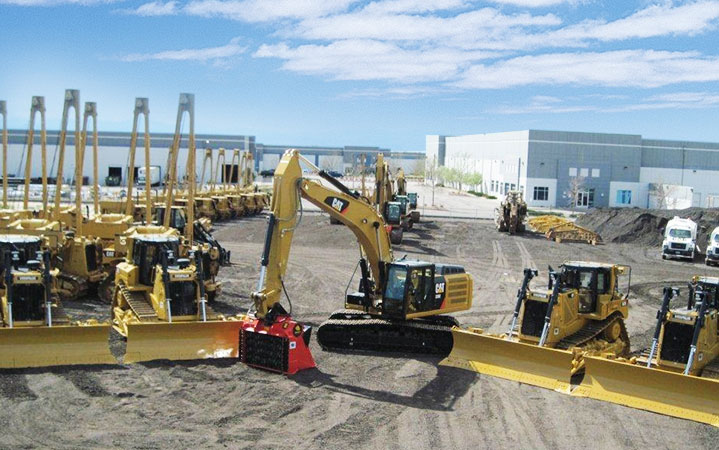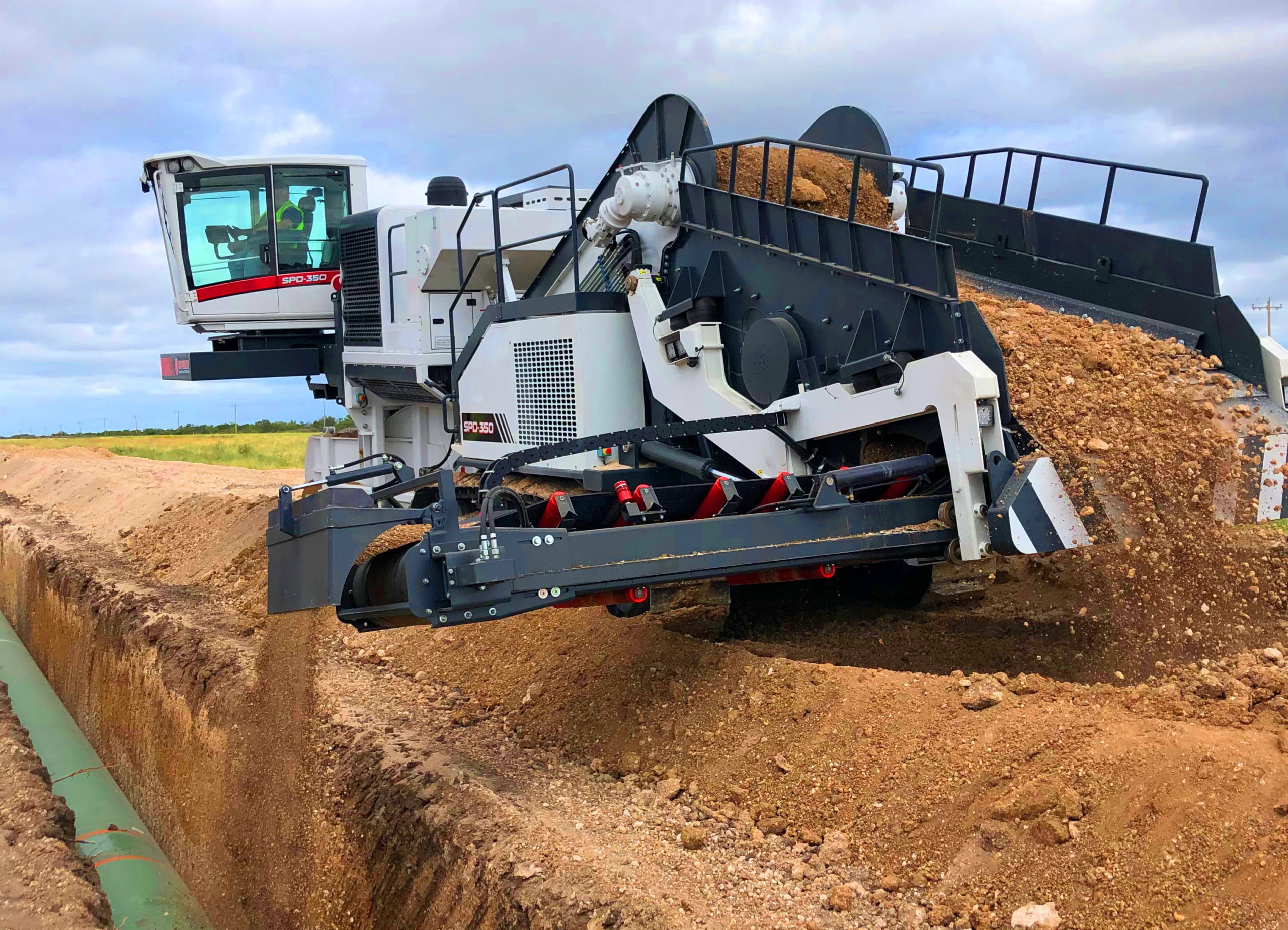Superior Oilfield Rentals oilfield: impact on productivity
Wiki Article
A Comprehensive Overview to the Different Kinds of Oil Field Equipment and Pipeline Equipment Available
The oil and gas sector depends heavily on customized equipment for efficient extraction and transportation. Various kinds of machinery, from drilling rigs to tank, play vital duties in this intricate procedure. Each tool serves distinct features that add to overall functional success. Comprehending these components is essential for anybody entailed in the market. As the market evolves, so as well do the technologies that sustain it. What developments are on the perspective?
Drilling Rigs: The Backbone of Oil Expedition
Drilling rigs work as the crucial machinery in the domain of oil expedition, allowing firms to access hydrocarbon books buried deep beneath the Planet's surface area. These rigs are available in various kinds, including land rigs, offshore rigs, and mobile units, each designed to run in details environments. Outfitted with advanced technology, drilling rigs can permeate geological formations with accuracy, ensuring reliable source extraction. The structural stability and functional capabilities of these rigs are essential, as they need to endure extreme conditions and considerable pressures. The option of a boring rig influences the overall project expense and timeline, making it a vital consideration for oil business seeking to maximize their expedition efforts and make the most of efficiency in their operations.Pumps: Crucial for Fluid Motion
In the oil removal process, the role of pumps is significant, promoting the motion of fluids throughout numerous stages of production. Pumps are vital for transferring crude oil, water, and other liquids from below ground storage tanks to the surface and after that via pipes to refineries. They come in various types, including centrifugal, favorable displacement, and submersible pumps, each offering specific objectives based on the liquid attributes and functional needs. Centrifugal pumps are frequently used for their efficiency in high-flow applications, while favorable displacement pumps master managing thick liquids. The selection of pump influences total effectiveness, functional security, and maintenance prices. Correct choice and upkeep of pumps are essential for maximizing production and minimizing downtime in oil area operations.Shutoffs: Managing Flow and Pressure

Valves play an essential duty in handling the circulation and pressure of fluids within oil areas and pipes. Numerous types of valves offer unique applications, each created to satisfy specific features essential for efficient operation - Superior Rentals near me. Recognizing the qualities and uses of these shutoffs is crucial for enhancing system performance and security
Kinds of Valves
Important parts in oil field operations, valves play an important role in regulating the circulation and stress of liquids within pipes and equipment. Different kinds of shutoffs are used to fulfill the varied needs of oil and gas manufacturing. Common types include gateway valves, which give a straight-line circulation and marginal stress decline; world shutoffs, recognized for their strangling capacities; and ball shutoffs, acknowledged for their fast on/off control. Furthermore, check valves avoid heartburn, while butterfly valves supply a lightweight option for regulating circulation. Each valve kind is designed with certain products and setups to withstand the severe conditions typically located in oil fields, making sure integrity and performance in procedures. Understanding these types is vital for efficient system administration.Valve Applications and Functions
While numerous kinds of valves serve distinctive functions, their key applications focus on controlling circulation and stress within oil and gas systems. Shutoffs such as gate, globe, and sphere shutoffs control liquid movement, making sure peak performance and safety. Gate shutoffs are typically made use of for on/off control, giving very little circulation resistance. Globe valves, on the various other hand, offer exact flow policy, making them ideal for throttling applications. Round shutoffs are favored for their quick operation and limited sealing capacities. In enhancement, stress relief shutoffs are critical for preventing system overpressure, guarding tools honesty. In general, the proper option and application of shutoffs enhance functional effectiveness, making sure the reputable transportation of oil and gas via pipelines and processing centers.Compressors: Enhancing Gas Transport
Compressors play a critical duty in the reliable transportation of natural gas, ensuring that it relocates efficiently via pipes over cross countries. These tools increase the stress of all-natural gas, permitting it to get over rubbing and elevation adjustments within the pipeline system. In addition, compressors facilitate the balancing of supply and demand, accommodating fluctuations in intake and production prices. Various sorts of compressors are used in the industry, including centrifugal, reciprocating, and rotating screw compressors, each offering unique benefits based upon the functional needs. Normal upkeep of these compressors is necessary to optimize effectiveness and reduce downtime, ultimately adding to a reputable gas transportation network. Their important feature emphasizes the relevance of compressors in the overall oil and gas infrastructure.Storage Tanks: Safe and Effective Liquid Administration
Effective transportation of all-natural gas depends on various support group, one of which is the appropriate monitoring of tank. These storage tanks play an important function in securely including fluids, making sure that functional effectiveness is maintained while reducing ecological risks. Built from durable products, they are designed to hold up against high stress and harsh elements. Appropriately sized and purposefully located, storage space containers assist in the smooth circulation of natural gas and various other fluids, stopping traffic jams in supply chains. Regular maintenance and tracking are essential to discover leakages or structural problems, promoting safety and security and conformity with governing standards. Eventually, the reliable monitoring of storage tanks is critical for the general honesty and integrity of the oil and gas industry's fluid handling systems.
Pipeline Solutions: Framework for Transportation
Pipeline systems work as the foundation of the oil and gas industry, facilitating the efficient transportation of hydrocarbons over large ranges. These systems contain different parts, consisting of pipelines, shutoffs, pumps, and compressors, all meticulously created to assure seamless circulation. The materials made use of in pipeline construction, usually steel or high-density polyethylene, are chosen for resilience and resistance to corrosion. Pipeline networks can span across land and water, attaching manufacturing sites to refineries and distribution centers. In addition, advanced modern technology makes it possible for real-time surveillance of circulation prices and pressure degrees, enhancing functional effectiveness. The tactical placement of these pipes minimizes ecological influence while maximizing source access, thus playing a vital function in meeting power demands globally.Safety And Security Equipment: Making Certain Worker and Environmental Management
The procedure of pipeline systems, while vital for power transportation, likewise presents substantial safety and security obstacles for employees and the setting. Safety devices plays a considerable duty in minimizing these dangers. Individual safety tools (PPE) such as helmets, gloves, and non-slip footwear safeguards workers from physical risks. Additionally, gas detection systems monitor for leaks, making sure that harmful click here compounds do not present a danger to employees or the bordering ecosystem. Emergency shutdown systems are vital for promptly stopping operations throughout a crisis, avoiding possible disasters. Spill control products, including absorbents and barriers, are fundamental for minimizing ecological influence. On the whole, spending in comprehensive safety devices is critical for keeping functional honesty and securing both employees and the atmosphere in the oil and gas field.
Regularly Asked Inquiries
How Do I Select the Right Oil Field Equipment for My Job?
Selecting the right oil field tools includes evaluating task requirements, budget restrictions, and operational requirements. Take into consideration factors such as devices dependability, compatibility with existing systems, and the provider's online reputation to ensure peak efficiency and safety and security.What Are the Maintenance Demands for Oil Field Equipment?
Upkeep demands for oil field devices consist of regular assessments, lubrication, and timely repair work. Operators must also adhere to producer guidelines, monitor performance metrics, and assurance compliance with safety and security guidelines to enhance longevity and efficiency.
Exactly How Can I Make Sure Conformity With Environmental Laws?
To ensure conformity with environmental regulations, firms need to conduct regular audits, implement ideal methods, buy training, preserve appropriate documents, and stay upgraded on regulation (Superior Oilfield pipeline equipment rentals). Partnership with environmental firms can also improve adherence to lawsWhat Is the Typical Lifespan of Pipeline Equipment?
The typical lifespan of pipeline equipment commonly ranges from 20 to 50 years, depending upon elements such as worldly quality, environmental problems, and maintenance methods. Routine inspections can substantially affect long life and functional efficiency.How Do I Safely Transfer Oil Field Equipment to Remote Locations?
Transferring oil field tools to remote places requires cautious planning, consisting of path assessment, safeguarding authorizations, utilizing suitable automobiles, and guaranteeing safety protocols are complied with. Appropriate training and interaction amongst staffs are necessary for effective transport.Report this wiki page